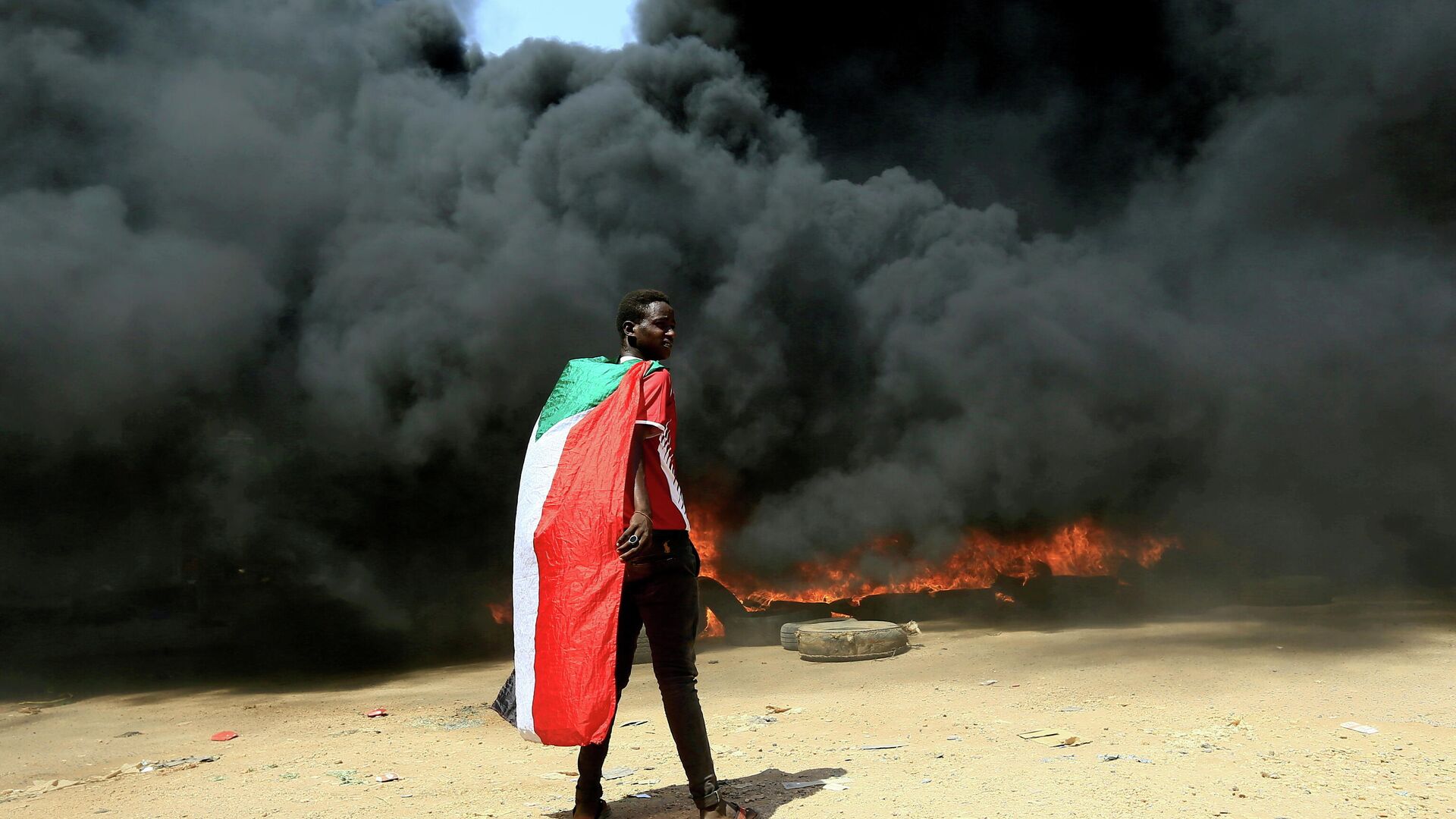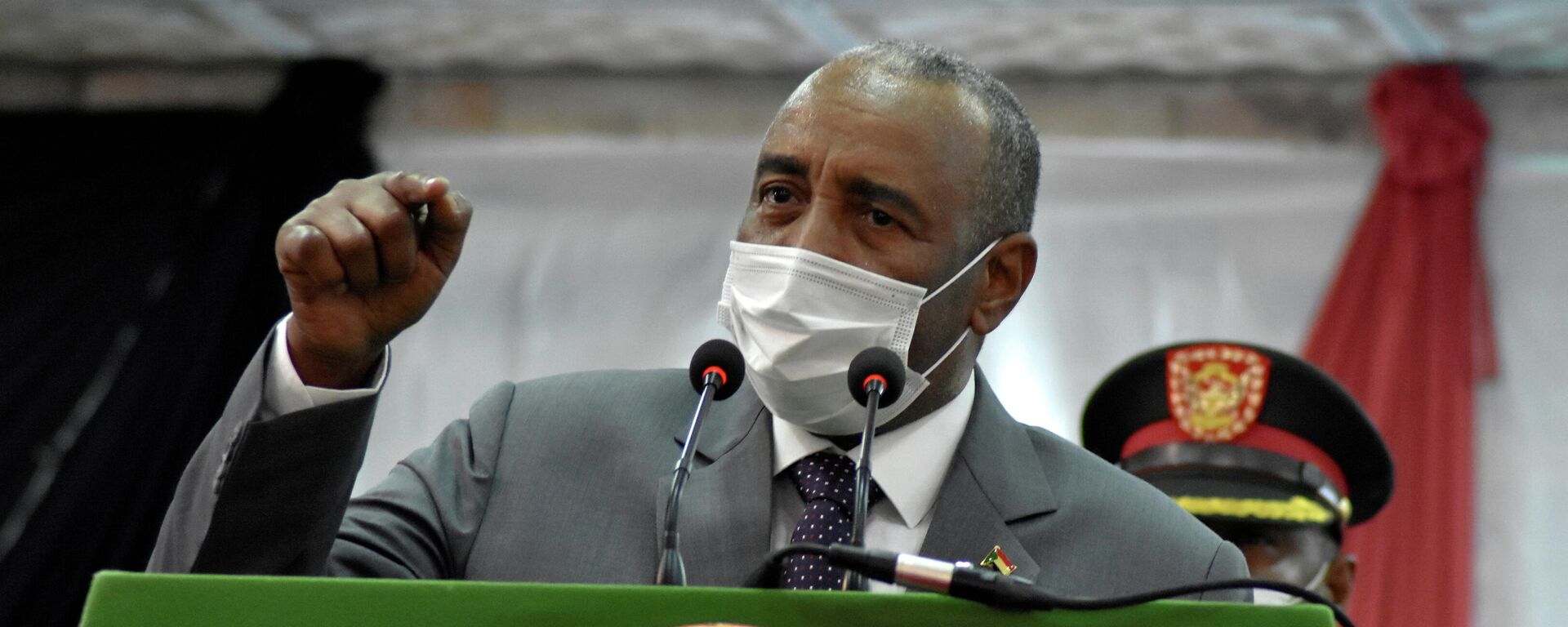Anti-Coup Groups Denounce Deal Between Military Junta & Former PM as ‘Betrayal of Sudanese People’
21:26 GMT 24.11.2021 (Updated: 13:26 GMT 06.08.2022)

© REUTERS / MOHAMED NURELDIN ABDALLAH
Subscribe
Amid serious public pressure, Sudanese Prime Minister Abdalla Hamdok has sought to justify his deal with the military, telling Saudi-backed Al Arabiya network in a Tuesday interview that he entered into the “political agreement” in hopes of “sparing the blood of the Sudanese and preserving the [economic] gains made.”
Hamdok was returned to his previous post Sunday following nearly a month spent under house arrest after Sudanese army chief Abdel-Fattah al-Burhan deposed the civilian government in a dramatic coup d’etat on Oct. 25.
Proponents of civilian rule were quick to denounce the 14-point agreement, and prominent activist groups, such as Forces for Freedom and Change and the Sudanese Professionals Association, have pledged to continue mobilizing until full civilian rule is restored.
Huge crowds of Sudanese demonstrators took to the streets of Khartoum Sunday immediately after the deal was announced to condemn the arrangement.
Sudan's military reinstated Prime Minister Abdalla #Hamdok on Sunday after weeks of deadly unrest triggered by a coup. However, protests continued in the capital.
— FRANCE 24 English (@France24_en) November 22, 2021
"By doing what he did [in signing an agreement with the army], Hamdok betrayed the street," said one protester pic.twitter.com/DRQq0JgBap
In an interview with Sputnik News, British-Sudanese journalist Ahmed Kaballo described the pact as a “betrayal of everything people gave their lives for in the streets,” because “the military are the ones responsible for the bloodshed.”
Hamdok’s decision to share power with “the killers of Sudanese protesters,” Kaballo says, means that “blood has been spilt for nothing.”
“Hamdok doesn’t have the moral right to say he’s embarked on this treacherous path with the military to save more bloodshed,” Kaballo continued, adding that his father, prominent opposition figure and economist Dr. Sigdi Kaballo, was at one time a close associate and “good friend” of the prime minister.
Following Hamdok’s “capitulation” to the military junta, he said his father “doesn’t know what has happened to the man he once knew.”
The Sudanese prime minister has defended his collaboration with the military junta as the only way to “avoid further killing” and pledged that the incoming regime will be formed within two weeks and consist mainly of “independent technocrats.”
However, that argument holds little sway with many influential factions of the opposition.
Sudanese Communist Party Secretary General Muhammad Mukhtar al-Khatib warned that a non-democratic technocratic regime would mean deferring to the foreign “experts” of groups like the International Monetary Fund. Al-Khatib called the deal a “betrayal of the Sudanese people” which would leave the unelected generals “dominant over the transitional authority,” and said it came at the behest of “the US defense secretary.”
If true, it would certainly track with statements being emitted by the US State Department. Secretary of State Anthony Blinken claimed Wednesday the Sudanese military had taken an “important first step” by allowing Hamdok to return to his post after making separate calls to both Hamdok and al-Burhan. Blinken’s spokesman, Ned Price, has publicly conditioned the restoration of $700 million in aid to Sudan on adherence to the deal.
The decision of whether to reinstate that financial backing, Price said, “will be predicated entirely on what happens in the coming hours and the coming days and the coming weeks.”
Previously, US Special Envoy for the Horn of Africa Jeffrey Feltman praised the military junta for showing “restraint” towards protesters, just two weeks before they went on to shoot dead 15 demonstrators on Nov. 17 - the bloodiest day of protest since the Oct. 25 coup.
As for the hundreds of thousands who’ve protested since then, Kaballo believes there’s “no way” they’ll stop now.
“Since 1956, Sudan’s had three military dictatorships.” he explained. “Then we’ve had three popular revolutions that have been stolen by the military apparatus in a coup,” the most recent of which took place in 2019.
Those “that went out to the streets, like the 40 young people who’ve died in recent protests against the Sudanese coup and the 128 killed in the Khartoum massacre on June 3, 2019, gave their lives to a cause greater than themselves–to end history repeating itself, to end this endless cycle of military dictatorships, popular revolutions, then military coups.”
For them, he says, there’s “no turning back.”
“They want to see a true democratization process in Sudan.”

